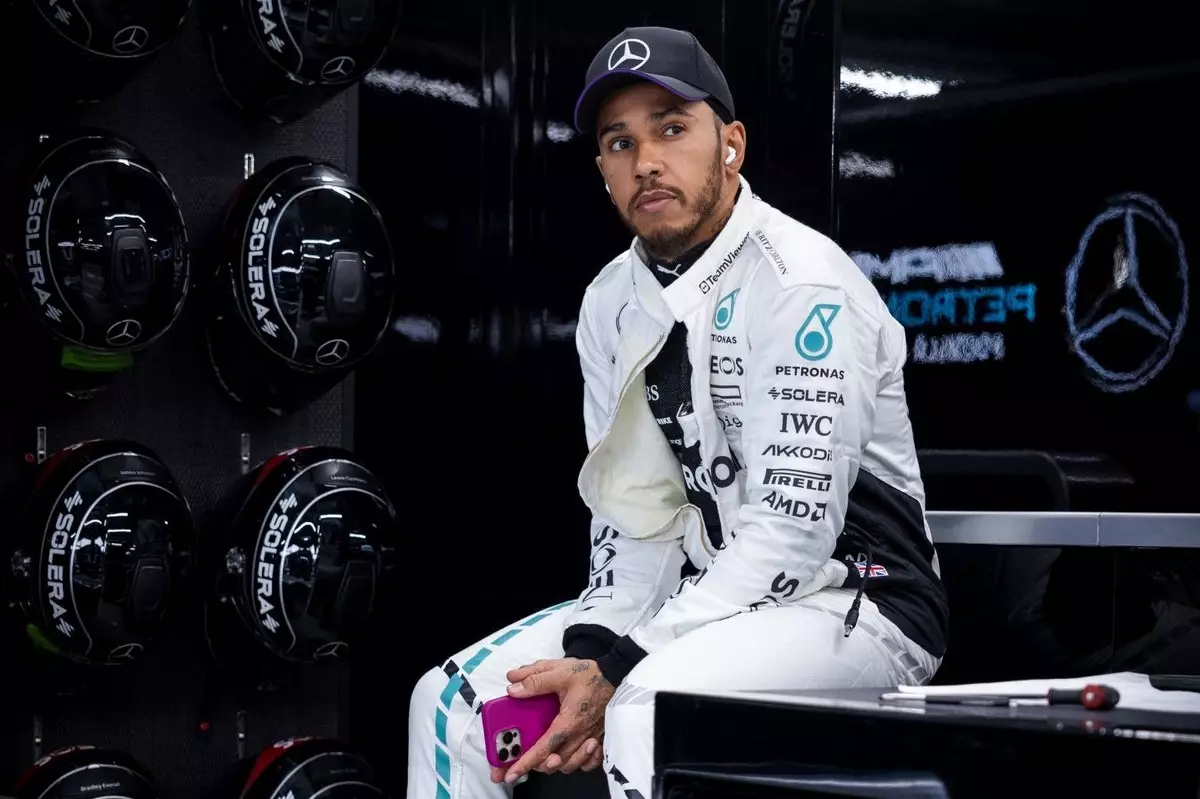The world of Formula 1 is swirling with the impending departure of Lewis Hamilton from Mercedes, a team he has helped build into a powerhouse over the past decade. This transition, albeit challenging, comes with a mix of emotions and reflections on the past. While Hamilton’s current struggles with the W15 car have been well documented, the insight from Ferrari’s boss, Fred Vasseur, reveals a broader perspective on Hamilton’s enduring skill and legacy within the sport.
Despite the challenging conditions under which Hamilton has operated this season, his prowess as a driver remains unquestioned. Fred Vasseur’s unwavering confidence in Hamilton’s abilities shines through amid the chaos. After experiencing a disheartening race at the Qatar Grand Prix, where a jumble of misfortunes – a jump start, a puncture, and a pit lane penalty – resulted in a disappointing 12th place finish, it is easy to forget the driver’s unparalleled talent. Hamilton himself expressed bewilderment at his struggles, stating, “I’m definitely not fast anymore.” However, Vasseur sharply highlights Hamilton’s remarkable performance in Las Vegas, where he showcased his undeniable capability by surging from 10th to a podium finish. Such feats serve as reminders that while the present may be difficult, Hamilton’s speed is not extinguished.
As the final race weekend in Abu Dhabi approaches, the emotion surrounding Hamilton’s farewell to Mercedes is palpable. Team principal Toto Wolff has articulated the bittersweet nature of this conclusion, emphasizing the shared journey they’ve experienced together. Since they joined forces in 2013, their collaboration has led to substantial achievements, including eight Constructors‘ titles and numerous Drivers’ Championships. Reflecting on the season’s challenges and emotional highs, Wolff underscores a mutual respect and understanding as both parties gear up for a new chapter. He acknowledges the inevitable ups and downs of this unconventional farewell year, yet insists that the strength of their relationship will prevail regardless of immediate results.
The contrasting narratives of an illustrious past and a tough present place Hamilton’s journey under a scrutinizing lens. While the season may not have unfolded as desired for Hamilton, the memories and accolades accrued over the decades will far overshadow a single challenging year. Wolff’s sentiment encapsulates a widespread feeling: „After next Sunday, we’re going to look back at this great period of time rather than a season of races that were particularly bad.“ This broader perspective is critical; it reminds fans and commentators alike that sporting legacies are constructed over many seasons, not merely defined by a single campaign.
Hamilton’s future with Ferrari presents an intriguing prospect for both the driver and the team, especially as they embrace the changes ahead. Vasseur’s lack of concern about Hamilton’s current form suggests a belief in the potential for greatness, even through adversity. With an incoming wave of talent, including Kimi Antonelli, Ferrari aims to blend youthful energy with Hamilton’s experience, creating a compelling dynamic for the series ahead. The notion that Hamilton’s presence could elevate Ferrari’s competitiveness adds another layer to this evolving narrative.
Hamilton’s impending transition marks not just a personal change but a pivotal moment in Formula 1 history. As he prepares for his final outing with Mercedes, reflections on his legacy will soon overshadow worries about his recent performance. The sentiments expressed by Wolff and Vasseur encapsulate a broader understanding of what constitutes greatness in sports: resilience, legacy, and the ability to inspire. Regardless of the immediate setbacks, Lewis Hamilton remains one of the sport’s greatest drivers, and as he steps into a new chapter, the motorsport community will undoubtedly be watching, eager to see how this legendary career continues to unfold.


Napsat komentář